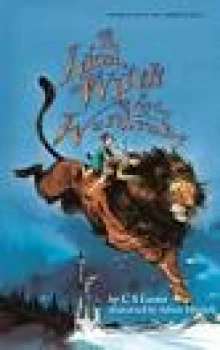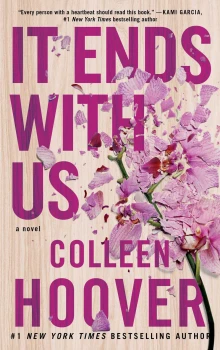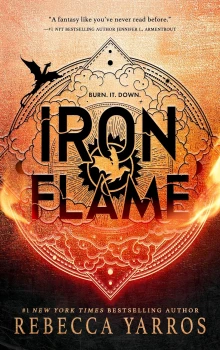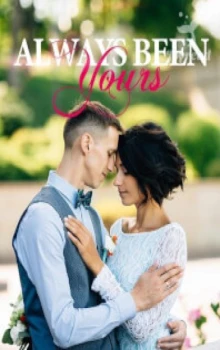Thirty-Three
Lucas’s lopsided gait was more noticeable than usual in the empty hallway; his left foot struck harder than before, with a slight scrape of shoe on concrete. I focused on that detail in an effort to regain control.
The elevator ride was silent, as was our exit into the hall.
A sudden thought snaked into my brain as I took in the stiff set of his shoulders, the hand-raked hair that stubbornly refused to lie flat. What if he wasn’t talking because he was distancing himself? I mean, it wasn’t like he needed to stretch that MIT brain far to realize I’d failed. So maybe he was just preparing himself for when I was gone.
Gone. A harsh laugh pulsed up my throat. I guess I’d resorted to euphemisms. By “gone,” I meant “reprogrammed,” or even worse, “terminated.”
Either way, with the flip of a few switches, the me I knew now would disappear forever.
If they reprogrammed me, would I still remember Mom afterward? No, she’d mean nothing. Just another face in a sea of them. I wrapped my arms around my waist and shivered. Worse—she’d be punished for my failure; Holland had said as much. Stealing from the U.S. military—she’d be jailed for life. If only I’d aced all the tests . . . I’d been so close, so close to saving her. . . .
I stopped, stared at the ground, tried to calm myself even though I wondered why. It was over. Hiding my emotions now would do nothing to save us.
In a rising panic, I lurched closer to Lucas and grabbed the front of his shirt. His heart beat strongly beneath the fabric, as if testifying to his humanity, his inner decency.
But I knew all too well how that steady rhythm could lie.
“I know that last test was like signing my death war-rant . . . although I guess you can’t really kill what was never alive, right?”
A sound suspiciously like a sob escaped my mouth. And then my throat constricted. No matter what they said, I was alive. I had to be. At least in part. Because the one clear thought screaming through me right now was: I don’t want to die.
I didn’t want to die. Not when I’d barely had a chance to live.
I clenched my fists, waited for the feeling that clutched at my chest to ease a little, until I could talk without completely losing it. “Look, I know there’s nothing you can do for me,” I finally said, “but can you please try to keep my mom safe? If I’m gone, she won’t cause you any more grief. There won’t be any reason to.”
Lucas stared into my eyes so directly, so intensely, it was like he was seeing beyond them, searching for something deep inside. Like he could see past my exterior to what lay underneath. I wanted to tell him that if he found anything unexpected, he should let me know. Because despite the undeniable knowledge that I wasn’t human—or mostly human, anyway—despite the proof the computer screen had shown in the repair room, I still pictured my interior just the same as any other sixteen-year-old girl’s. Blood and guts and bones. A brain, and a functioning heart. Hopes and dreams, fears and sorrow. They could tell me the truth, but they couldn’t force me to accept it.
Lucas lifted his hand, let his fingers hover in midair before shoving them into his pocket. “I need to take you to your holding cell so I can get to my computer,” he said, staring blankly at a point just over my head. “General Holland will be expecting a report soon.”
I nodded numbly.
“You . . . you’ll have to let go of my shirt first.”
An awkward moment hit when I realized that I still clutched his shirt like it was a life raft. With a mumbled “Sorry,” I hastily released the starchy fabric and stepped back, and saw the nasty brown streaks I’d left all over it. I’d forgotten. Somehow in all the chaos I’d forgotten that I was covered in mud.
“Your shirt,” I said, inadequately.
He looked down like he hadn’t noticed either. “It’ll wash,” he murmured.
Lucas led me down two corridors, the second full of doorways. My feet slowed, my attention captured by that first steel rectangle. Could Mom be on the other side of that door? Or the next one? Or the one after that?
“She’s not here,” Lucas said softly, slowing his pace to match mine. “The infirmary’s in a different part of the building.”
My gaze slid from the door in defeat. He could be lying, but somehow I didn’t doubt him.
We passed five more identical doors on the right before he halted to push a narrow door open.
“Shower,” he said. “Take your time.”
I emerged about fifteen minutes of harsh scrubbing later, finally clean and wearing my old clothes again, which had been neatly piled on a tiny stool in the corner.
After passing two more doors, he performed the pass-code ritual.
Once the beep sounded and the door lumbered open, I walked inside without prompting, taking unenthusiastic note of my surroundings. It was tiny; smaller even than my room back at Greenwood Ranch.
Dimensions: 7 ft. by 7 ft.
This time, I couldn’t drum up enough feeling to get annoyed by the voice. Even if, once again, I could have lived without knowing the exact dimensions.
Not much to see inside. A narrow cot against the far wall, one olive-green blanket folded in a neat square on top. Small steel toilet attached to right wall. Barren concrete floor. And the pungent scent of bleach, burning away any traces of previous occupants.
It was a room without pretensions, a room unconcerned with masquerading as something fancier than what it actually was: a prison cell.
Possibly the last place I’d ever “sleep.”
Weariness settled over me, my reminder that humans—even pretend ones—needed rest. I walked the two steps to the cot and sat down. I wondered if it was real fatigue, or if somehow my brain knew when to trigger a fake signal. Maybe it was based on the amount of activity my body performed—like an exercise equation—because it certainly varied too much to be based solely on time.
I no longer cared enough to ask.
Ignoring the way Lucas hovered in the doorway, halfway in, halfway out, I collapsed onto my side. My eyelids closed. Wetness pooled beneath them, but I didn’t bother wiping it away this time.
A harsh, indrawn breath. Hesitant footsteps. The sound of a joint cracking. “Mila?” Lucas’s voice, soft, like he was afraid to startle me. Emitting from very close by. “Are you okay?”
I opened my eyes, unsurprised to find him squatting beside the cot.
When he reached out this time, his hand didn’t stop, not until his fingers touched the traces of wetness left on my cheeks. I froze in place, unmoving, feeling the gentleness, the warmth, of his skin on mine. If I had any real air in my lungs, it’d be catching right about now. “You were crying,” he said, in a hush.
I stared. Did that mean he actually cared? That someone in the world, besides Mom, besides a boy I’d probably never see again, thought of me as more than an expensive piece of machinery? Because I was starting to lose faith myself.
He wiped first one cheek, then the other. Just that simple act, that tiny show of compassion, felt like a miracle.
And then he shattered the illusion by looking over his shoulder and stiffening, before lifting his hand up to eye level, staring at the liquid, and rubbing it beneath his fingers. As if to assess the liquid’s physical properties.
Which was exactly what he was doing. Lucas was awed by what an amazing work of science I was, no more, no less.
I rolled onto my other side and faced the wall. Hoping he’d take the hint, run along, and examine his data.
When the door slid shut behind him, I tucked my knees up to my chin and hugged them tight. The fetal position; something I’d never known firsthand. The womb I’d experienced hadn’t been a living body but a lab, one probably as cold and sterile as this room. I should feel right at home.
I closed my eyes, hoping for reality to fade away, at least for a little while. I imagined that I was protected. Safe. Imagined I could smell Mom’s rosemary lotion, feel the soft slide of her hand down my hair, hear her heart beating above me as a gentle reminder that I wasn’t alone.
I didn’t want to be alone.
Footsteps approached down the long corridor leading to my room, much sooner than I’d anticipated. Lucas’s lopsided strides, along with two more even sets of steps.
I jerked into a sit. Was this good? Bad? Indifferent? Surely Lucas couldn’t be finished analyzing data on that last test so quickly. And if he was . . . what did it mean?
The door beeped and slid open to reveal Lucas’s tall frame. In addition to the wrinkles and mud I’d inflicted on his shirt, the tips of his collar now flipped upward, as if mauled by stressed fingers. But in spite of that, his expression was carefully blank. No hint of emotion in those hazel eyes.
“General Holland is waiting,” he said in clipped, precise syllables.
Holland. Holland was waiting. I wasn’t ready to face him. I’d never be ready. “You finished the report?”
He shrugged and stared at the blank stretch of steel wall behind my cot.
I stood on heavy legs, commanded myself to walk. Every step felt impossible, like my feet had morphed into granite.
Lucas seemed strangely cold, distant. Not that it mattered.
I had more pressing worries.
Namely, my survival.






